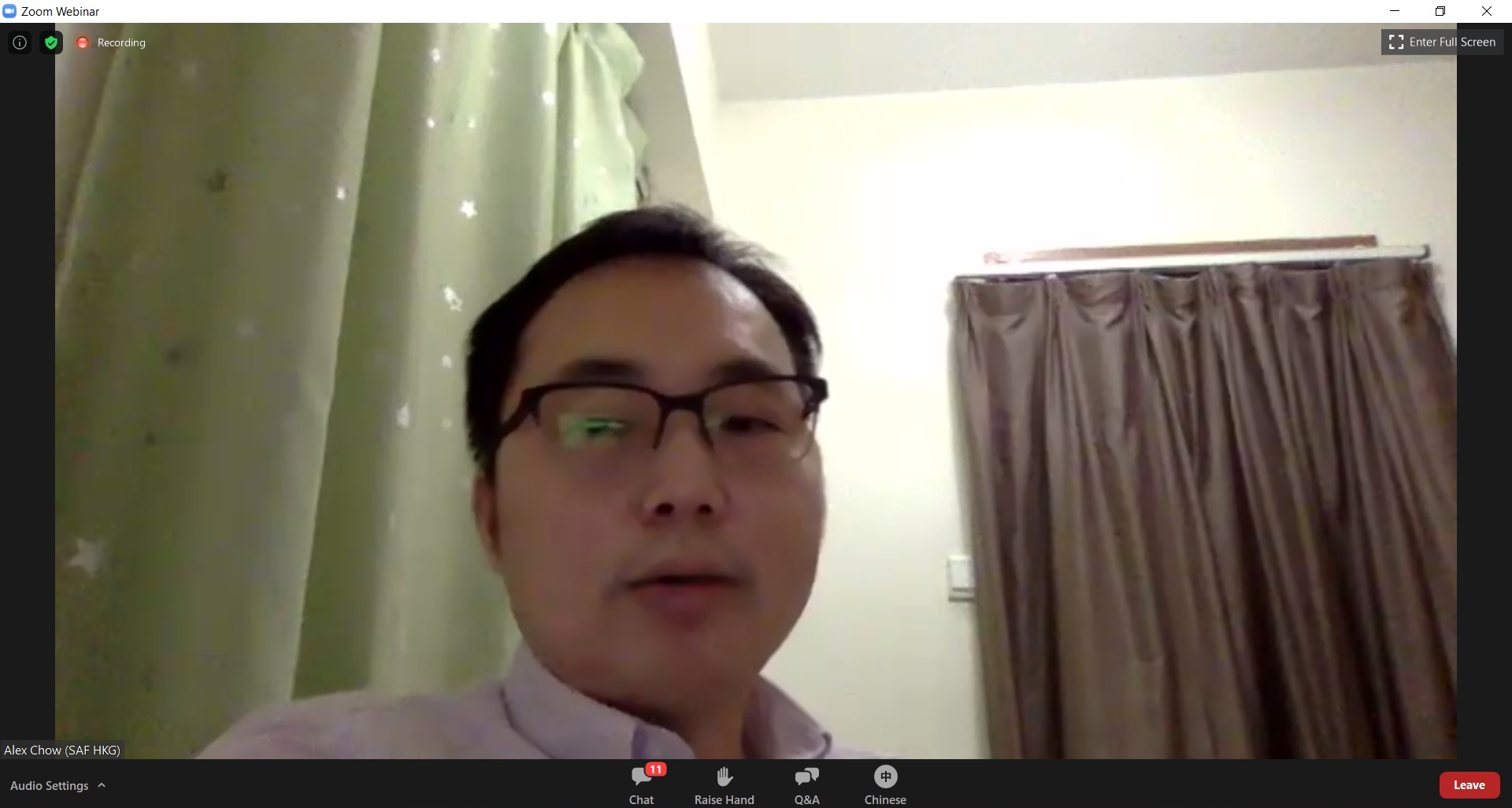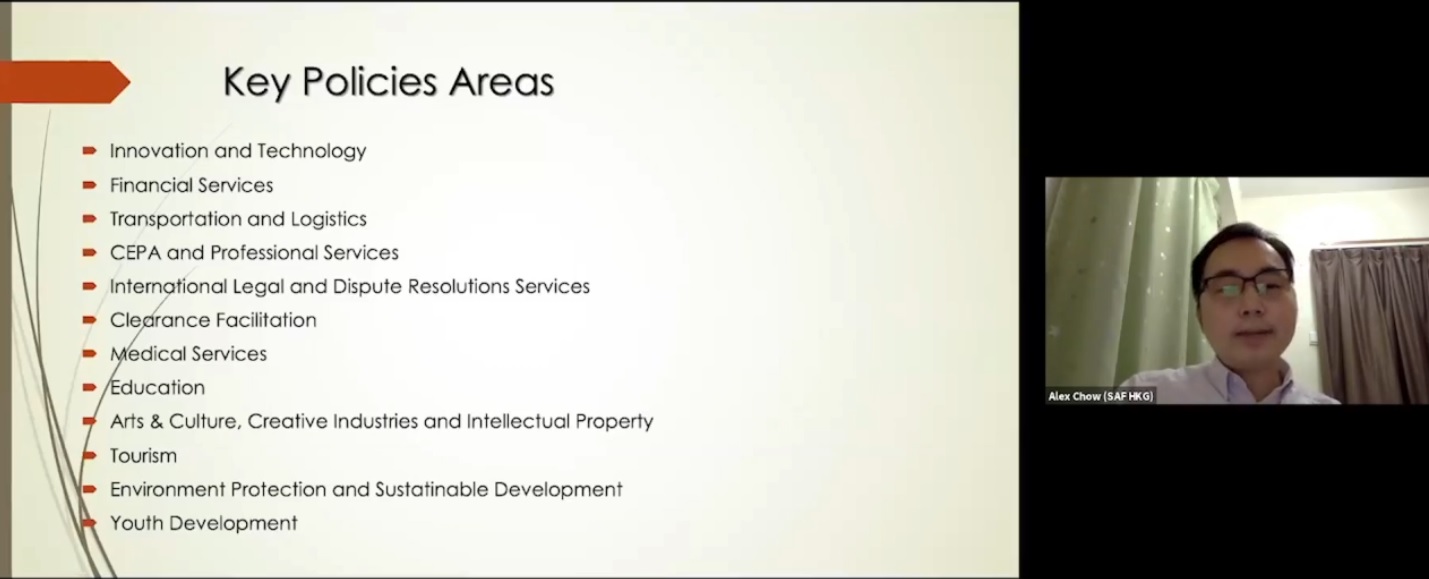
UTAR, in collaboration with China-ASEAN Business Association (CABA), organised a webinar titled “Doing Business in Hong Kong and China - Legal compliance, Tax and Financial Planning” via Zoom and Facebook live on 21 October 2020.
The webinar was moderated by Singapore Institute of International Affairs Senior Fellow and Principal Advisor for Pacific Research Center of Malaysia Dr Oh Ei Sun. Present to deliver the talk was Founding Director and member of Sino Asean Fiduciaries (HK) Limited and Sino Singapore Corporate Services Pte Ltd Alex Chow.


Alex Chow (left) and Dr Oh during
the webinar
During the webinar, Alex
Chow
first gave a brief introduction on One Belt One Road
(OBOR)
and Greater Bay Area (GBA).
He mentioned that the essence of the One Belt One is to achieve five
connecting points, which include government policies, infrastructure and
communication, trade barriers, financial and monetary policies, and cultural
barriers. “Before you tap into the opportunities of the Greater Bay Area,
you need to understand what it means to be a
Hong Kong permanent resident and resident,” he said. He added, “Under one
country two systems, there is no citizenship concept. The highest status of
a resident is “permanent resident”. There are two ways of gaining the
permanent resident status: one that was the resident before
the 1997
handover; the other way is to reside in Hong Kong for seven consecutive
years. A permanent resident may or may not be a China citizen.” He also
explained that a resident can be defined as a non-permanent resident, a
person who has obtained a work permit or entrepreneur visa or dependent
visa. “Any type of the
category can be considered as a resident concept. It would be beneficial if
you are looking into the benefits offered to the resident in the Greater Bay
Area.”
He then further explained
the
seven areas
of Greater Bay Area development
and
its mission as well as its
six basic principles. He
also shared the key policies of
Greater Bay Area development,
saying that transportation and logistics, financial services, international
legal and dispute resolution services are the areas that are highly promoted
by Hong Kong SAR government. Besides, he shared some policy measures that
benefit the general public and discussed how an individual can be defined as
a resident of Hong Kong.
“Hong Kong
is actually based on territorial tax system, which means only income that is
generated in Hong Kong is taxable. Technically, there can be income
partially derived from Hong Kong, and partially out of Hong Kong. Generally,
only income partially derived from Hong Kong is taxable,” he said. He added,
“Once you are considered as a taxable resident in Hong Kong, you can apply
for a tax residence certificate. It is important for international companies
to prove that they are qualified for the relevant double taxation agreements
so that they can enjoy the benefits.”
Moreover, he
talked about the advantage of doing business in Hong Kong, explaining that
Hong Kong is the heart of Asia due to its strategic location for business
and it has a very simple and competitive tax system. He also said, “Hong
Kong offers a vibrant environment for business. It is highly dynamic and
serves as a gateway to Mainland China and Asia. There are over 9,000
businesses and companies who have set up their strategic functions in Hong
Kong.” Besides, he explained the funding and schemes as well as the support
given by the government especially during the pandemic. He also talked about
the opportunities available in the Greater Bay Area and One Belt One Road,
as well as the advantages that Hong Kong companies can benefit. The talk
then ended with a Q&A session.

Alex Chow
discussing the key policies areas of Greater Bay Area

Alex Chow presenting 2019 annual
survey of companies operating in Hong Kong with parent companies located
outside Hong Kong, where the majority of the companies are from Mainland
China, Japan, United States, United Kingdom and Singapore
Wholly owned by UTAR Education Foundation Co. No. 578227-M LEGAL STATEMENT TERM OF USAGE PRIVACY NOTICE